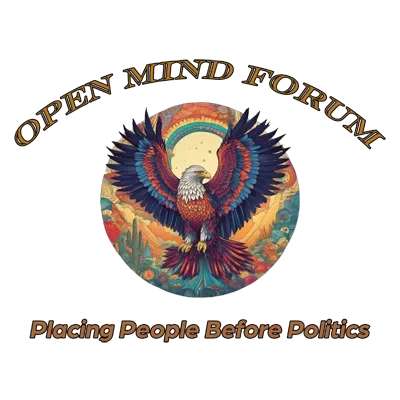The Ethical Synthesis of Emmanuel Levinas
Introduction: Between Athens and Jerusalem
Between Athens and Jerusalem takes a concise view of Emmanuel Levinas’ work that stood at the crossroads of Western philosophy and Jewish ethics, a tension he described as balancing “Athens and Jerusalem.” Through his work, he attempted a unique synthesis, weaving together rational, philosophical inquiry with the ethical

imperatives of Judaism. Levinas’ key themes—such as ethical responsibility, the importance of the “Other,” and self-sacrifice—permeate both his philosophical and Talmudic writings. This essay explores how he approached ethics through both the rigorous logic of Athens and the moral imperatives of Jerusalem, enriching modern ethical philosophy.
Responsibility for the “Other”: Levinas’ Ethical Heart
Central to Levinas between Athens and Jerusalem is his emphasis on responsibility for the “Other.” This concept dominates his philosophy. In works like Totality and Infinity, Levinas argues that ethical responsibility arises from encounters with other people, not rational calculations (Levinas, 1961). For him, the face-to-face meeting with another person imposes an immediate, undeniable ethical obligation.
Levinas doesn’t stop at general ethics, though. His Talmudic writings give depth to his views, exploring ethical commandments in Jewish law that require one to serve others selflessly. His lecture on the Talmudic concept of hospitality is particularly illustrative. Levinas interpreted welcoming the stranger as a universal commandment, applicable beyond Judaism and across cultures. This commandment shapes one’s moral character by instilling humility and altruism, placing others’ needs above one’s own. Here, Levinas harmonizes Athens and Jerusalem by grounding universal ethics in Jewish teachings (Handelman, 2011).
Between Athens and Jerusalem: Rationality Meets Revelation
Levinas believed that philosophical reasoning (Athens) and Jewish ethical commandments (Jerusalem) were not contradictory but complementary. While he engaged deeply with phenomenology, especially the works of Husserl and Heidegger, Levinas felt that their rational frameworks missed something crucial: ethics precedes

philosophy itself. Levinas posited that our first obligation is to recognize and serve others, which he saw as foundational to human interaction (Critchley, 2002).
In his Nine Talmudic Readings, Levinas extends this ethical foundation by interpreting commandments not merely as religious duties but as moral imperatives with universal significance (Levinas, 1990). He reinterprets these commandments, encouraging readers to understand them as fostering empathy, compassion, and community responsibility. Thus, Levinas aligns Athens and Jerusalem by revealing the philosophical insight contained in Talmudic law.
The Non-Reciprocal Nature of Responsibility
Levinas’ ethics go beyond Western philosophy by emphasizing a non-reciprocal responsibility. In his view, we should act ethically without expecting anything in return. His “non-reciprocal responsibility” insists that one’s duty to others remains, regardless of whether that care is reciprocated. This ethic is informed by Jewish teachings that prioritize selflessness in ethical encounters (Peperzak, 1993).
Levinas illustrates this idea with the concept of “substitution,” or the obligation to take the place of another in bearing their burdens. He describes this ethical calling as akin to the Jewish commandment of Tzedakah (charity), where giving is not an act of generosity but a moral duty. Levinas finds in these commandments an ethical mandate that transcends religious identity and requires a universal response (Morgan, 2011). In this way, Levinas deepens the connection between Athens and Jerusalem, aligning rational duty with ethical obligations derived from Jewish tradition.
Between Athens and Jerusalem — Levinas’ Legacy: Bridging Philosophy and Jewish Ethics
In blending Athens and Jerusalem, Levinas carved a unique path in ethical philosophy. He influenced many scholars who see his work as reshaping both Jewish and philosophical ethics. Yet, his critics argue that his concept of the “Other” is too abstract, and his insistence on ethics as an “infinite responsibility” demands an impossible level of selflessness (Critchley, 2002).
Despite these critiques, Levinas’ contributions to ethical philosophy remain powerful. His insistence that ethics must precede rationality, and his willingness to draw from Jewish commandments, presents a compelling framework for modern ethics. Levinas between Athens and Jerusalem serves as a profound meditation on the human duty to others, an ethical synthesis that is both ancient and urgent.
Sources Cited
Critchley, S. (2002). Ethics – Politics – Subjectivity: Essays on Derrida, Levinas and Contemporary French Thought. Verso.
Handelman, S. (2011). Fragments of the Future: The Ethics and Theology of Emmanuel Levinas. Indiana University Press.
Levinas, E. (1961). Totality and Infinity: An Essay on Exteriority. Duquesne University Press.
Levinas, E. (1990). Nine Talmudic Readings. Indiana University Press.
Morgan, M. L. (2011). The Cambridge Introduction to Emmanuel Levinas. Cambridge University Press.
Peperzak, A. T. (1993). To the Other: An Introduction to the Philosophy of Emmanuel Levinas. Purdue University Press.
Suggestions for Further Reading
- Ethics and Infinity by Emmanuel Levinas – A philosophical interview that introduces Levinas’ ideas on ethics and human responsibility.
- Alterity and Transcendence by Emmanuel Levinas – An exploration of transcendence through the ethical encounter with the Other.
- Reading Levinas/Reading Talmud by Aron Rosenberg – Examines Levinas’ Talmudic readings and how they shaped his philosophy.
- Levinas and the Crisis of Humanism by Richard Cohen – Analyzes Levinas’ rejection of Western humanism for a new ethical framework.
- Totality and Infinity by Emmanuel Levinas – Levinas’ major work on ethics, focusing on the primacy of the ethical encounter with the Other.
- Emmanuel Levinas: Ethics as First Philosophy by Adriaan Peperzak – A guide to understanding Levinas’ ethics and its implications for Western thought.
- Emmanuel Levinas on the Primacy of Ethics by Sean Hand – A study of Levinas’ ethical philosophy in dialogue with religious thought.
- Nine Talmudic Readings by Emmanuel Levinas – Collection of Levinas’ Talmudic lectures that explore Jewish ethical principles




